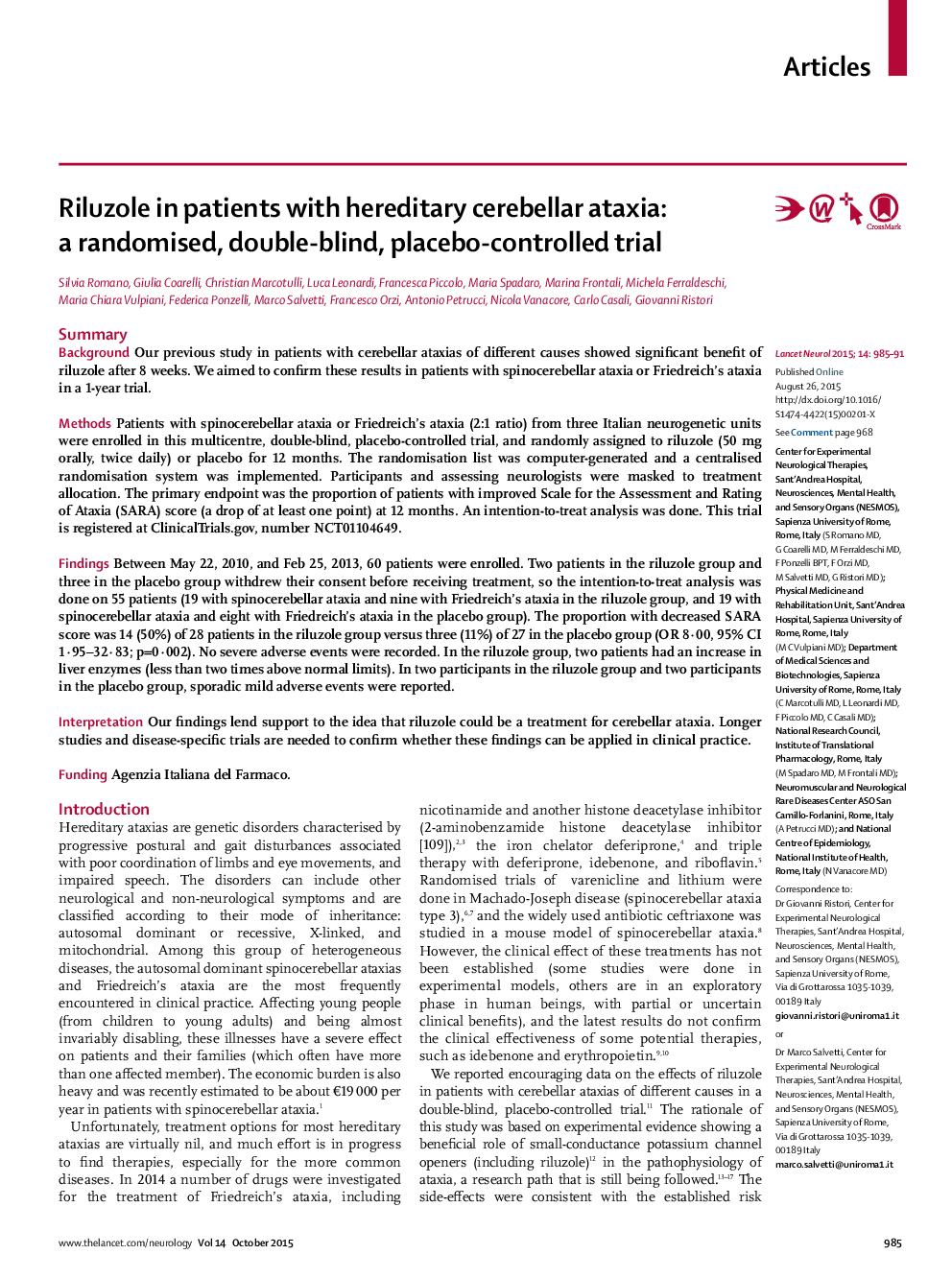| کد مقاله | کد نشریه | سال انتشار | مقاله انگلیسی | نسخه تمام متن |
|---|---|---|---|---|
| 3066667 | 1188092 | 2015 | 7 صفحه PDF | دانلود رایگان |
SummaryBackgroundOur previous study in patients with cerebellar ataxias of different causes showed significant benefit of riluzole after 8 weeks. We aimed to confirm these results in patients with spinocerebellar ataxia or Friedreich's ataxia in a 1-year trial.MethodsPatients with spinocerebellar ataxia or Friedreich's ataxia (2:1 ratio) from three Italian neurogenetic units were enrolled in this multicentre, double-blind, placebo-controlled trial, and randomly assigned to riluzole (50 mg orally, twice daily) or placebo for 12 months. The randomisation list was computer-generated and a centralised randomisation system was implemented. Participants and assessing neurologists were masked to treatment allocation. The primary endpoint was the proportion of patients with improved Scale for the Assessment and Rating of Ataxia (SARA) score (a drop of at least one point) at 12 months. An intention-to-treat analysis was done. This trial is registered at ClinicalTrials.gov, number NCT01104649.FindingsBetween May 22, 2010, and Feb 25, 2013, 60 patients were enrolled. Two patients in the riluzole group and three in the placebo group withdrew their consent before receiving treatment, so the intention-to-treat analysis was done on 55 patients (19 with spinocerebellar ataxia and nine with Friedreich's ataxia in the riluzole group, and 19 with spinocerebellar ataxia and eight with Friedreich's ataxia in the placebo group). The proportion with decreased SARA score was 14 (50%) of 28 patients in the riluzole group versus three (11%) of 27 in the placebo group (OR 8·00, 95% CI 1·95–32·83; p=0·002). No severe adverse events were recorded. In the riluzole group, two patients had an increase in liver enzymes (less than two times above normal limits). In two participants in the riluzole group and two participants in the placebo group, sporadic mild adverse events were reported.InterpretationOur findings lend support to the idea that riluzole could be a treatment for cerebellar ataxia. Longer studies and disease-specific trials are needed to confirm whether these findings can be applied in clinical practice.FundingAgenzia Italiana del Farmaco.
Journal: - Volume 14, Issue 10, October 2015, Pages 985–991
